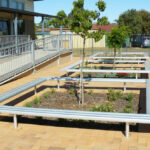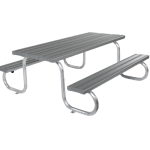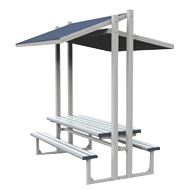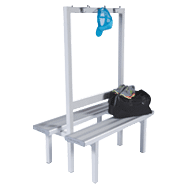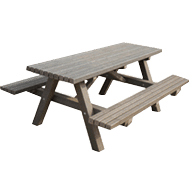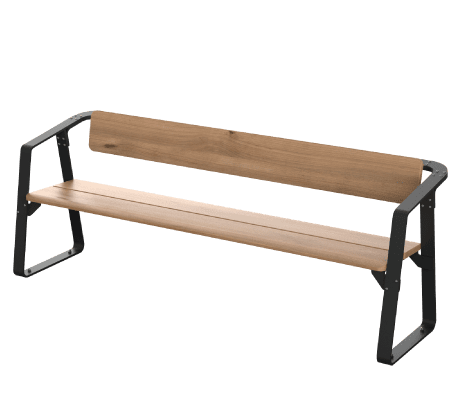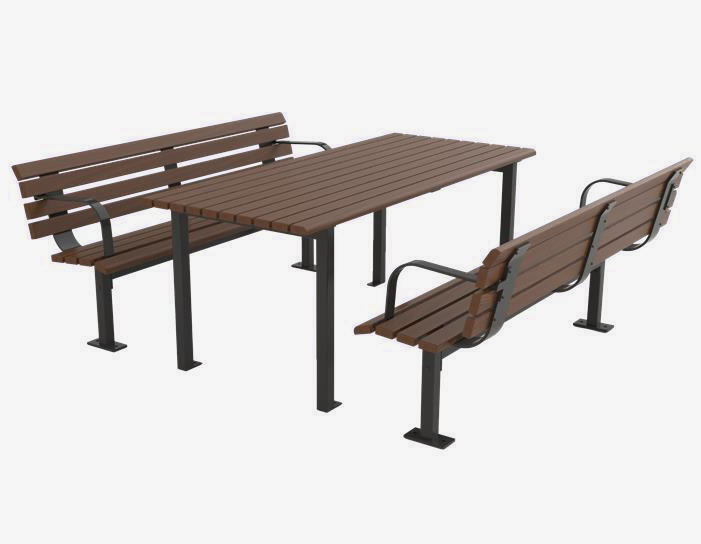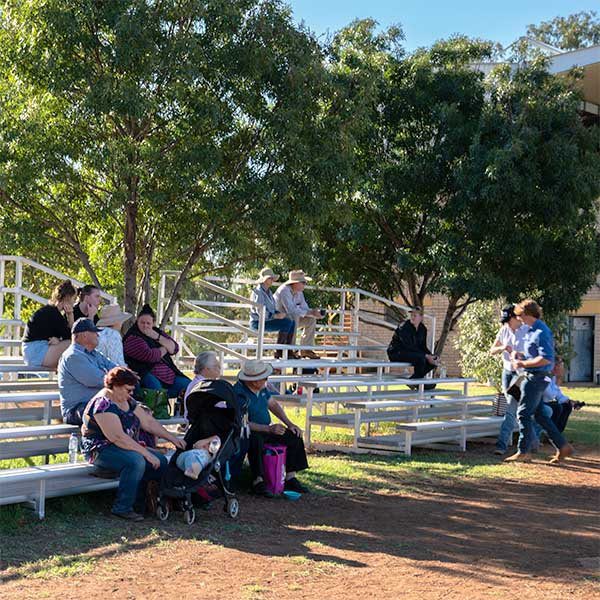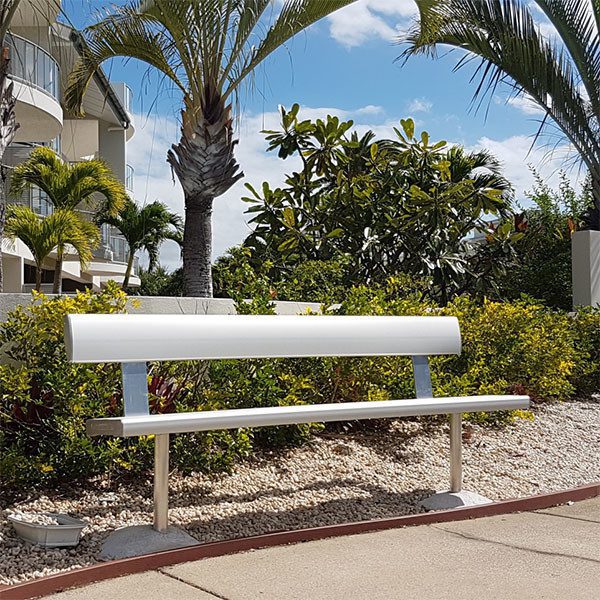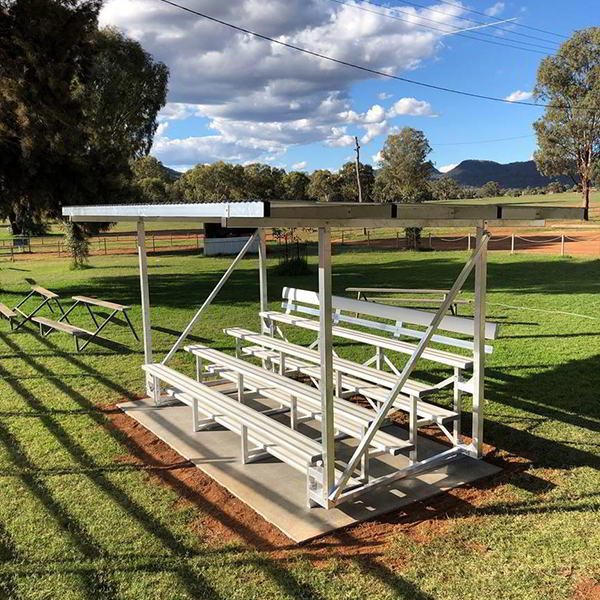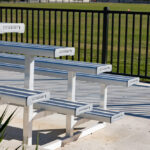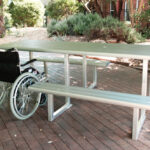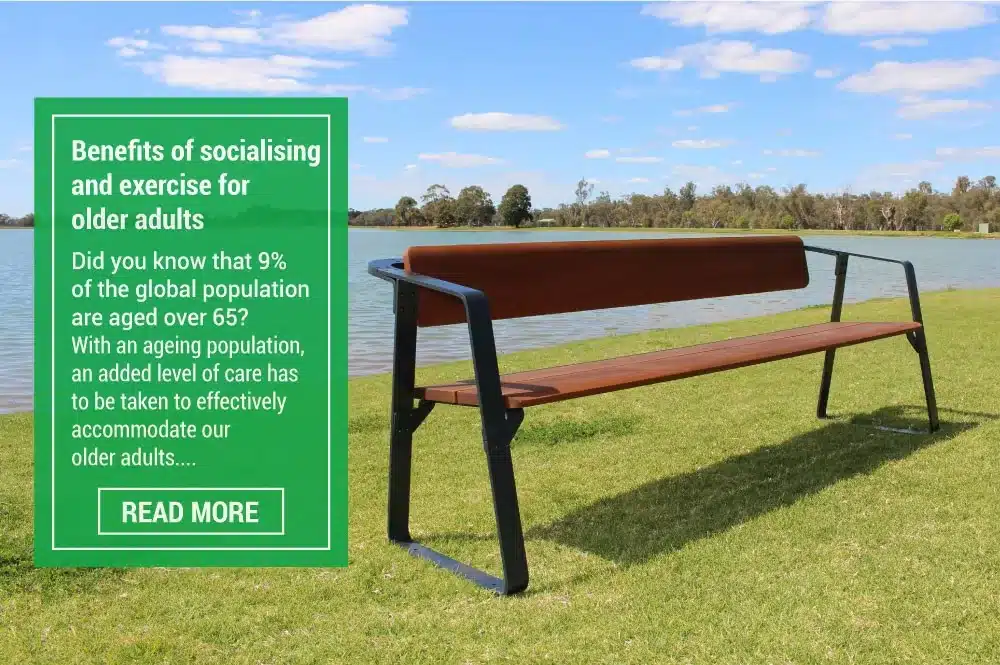
Benefits of socialising and exercise for older adults
Did you know that 9% of the global population are aged over 65? With an ageing population, an added level of care needs to be taken to accommodate our older adults. For many, especially in aged care facilities, the effects of lockdown have been felt at an amplified level. Loneliness and a lack of exercise due to strict government regulations have been sighted as two of the primary consequences of extended time in lockdown. Community spaces in aged care homes, community venues and public parks provide an opportunity for social interaction and regular exercise. With lockdowns now on the outer, these spaces can once again be more fully utilised and the benefits of socialising and exercise in older persons rekindled.
Why is exercise important for older persons?
Whilst all of us can reap the benefits of regular exercise, for older adults the benefits of exercising regularly is increased. Taking part in daily or weekly sessions can have significant implications on quality of life, alongside noticeable health improvements. Health professionals indicate that half of the physical decline that occurs with old age is due to a lack of physical activity. Associated problems include: a reduction in muscle mass, decrease in balance and coordination, decline in cardiovascular and respiratory function, higher blood pressure and risk factor increases with cardiovascular disease.
With regular physical exercise muscle mass and bone density can increase, reducing the risk of bone loss and osteoporosis. With regular movement there are also benefits to joints, improving suppleness and leading to healthier joints. Healthy noticeable changes are related to an active lifestyle rather than age.
How can combining exercise and socialisation encourage participation in older adults?
Studies conducted, such as the Enjoy Project2 highlight that regular inclusion in group-oriented activities is an effective way to encourage frequent exercise. In this instance they found the following were key factors in encouraging participation in physical activity:
- 93.5% liked exercising outdoors
- 94.7% noted that socialising whilst exercising was enjoyable
- 98.6% enjoyed participating in an exercising programme
- 98.7% noted they felt safe whilst conducting exercising
For younger children there are many instances where they are encouraged to socialise with peers, and such social interactions form important learning experiences. These experiences don’t diminish in importance with age. As individuals get older these interactions are vital. The American Public Health Association reports that socialising improves mood, cognition, memory recall and is associated with healthy benefits such as exercise.
How can exercise be encouraged?
To facilitate and encourage regular exercise within our older populations, we need to ensure there is the adequate suitable space and equipment to do so. For example, if group exercise walks take place within local parks there needs to have park benches and shelters, to allow for regular breaks and conversations. Facilities should be near community centres and aged care homes or private residences allowing for easy transportation to and from the location. The surrounding area also needs to be attractive and welcoming.
Here at Felton Industries, we design and manufacture quality and comfortable outdoor furniture suitable for use within parks, communities and aged care homes. We offer accessible seating and seating that can be customised to suit particular needs including raised heights, backrests and armrests and wheelchair access. Get in touch with our friendly time to find out more about our seating for Seniors.
References
- Social Network, Cognitive Function, and Dementia Incidence Among Elderly Women, https://ajph.aphapublications.org/doi/full/10.2105/AJPH.2007.115923. American Health Association
- . The Enjoy Trial: Exercise Intervention Outdoor Project in the Community https://www.nari.net.au/the-enjoy-trial.
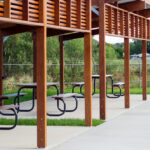
New Year, New Spaces: Outdoor Trends Shaping 2026
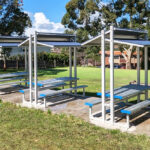
How to Maximise Your Outdoor Space for the Year Ahead

Media Release: Felton Industries announces four 2025 Felton Grant recipients

Stronger Spaces Start With Our End of Year Savings

Game On: Smart Grandstand Choices for Every Budget
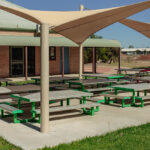
Top Five Outdoor Study Spots on Campus and How to Furnish Them
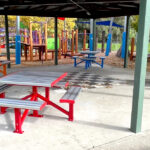
Why Schools Love Aluminium for Busy Playgrounds
